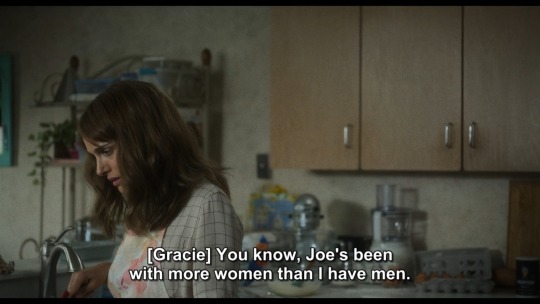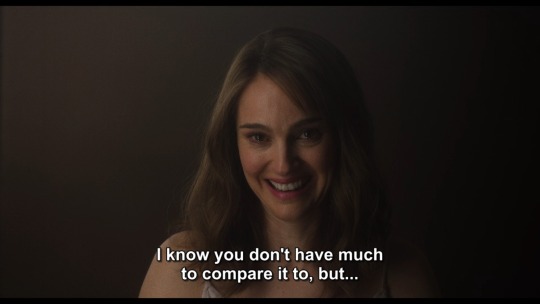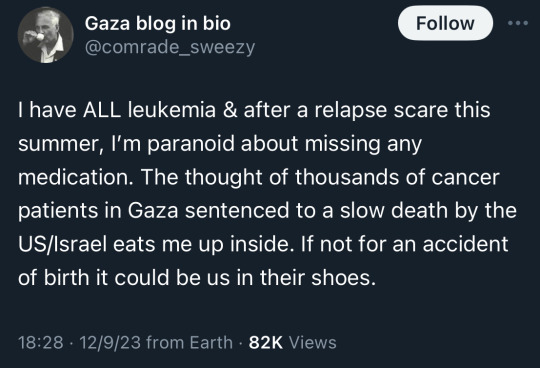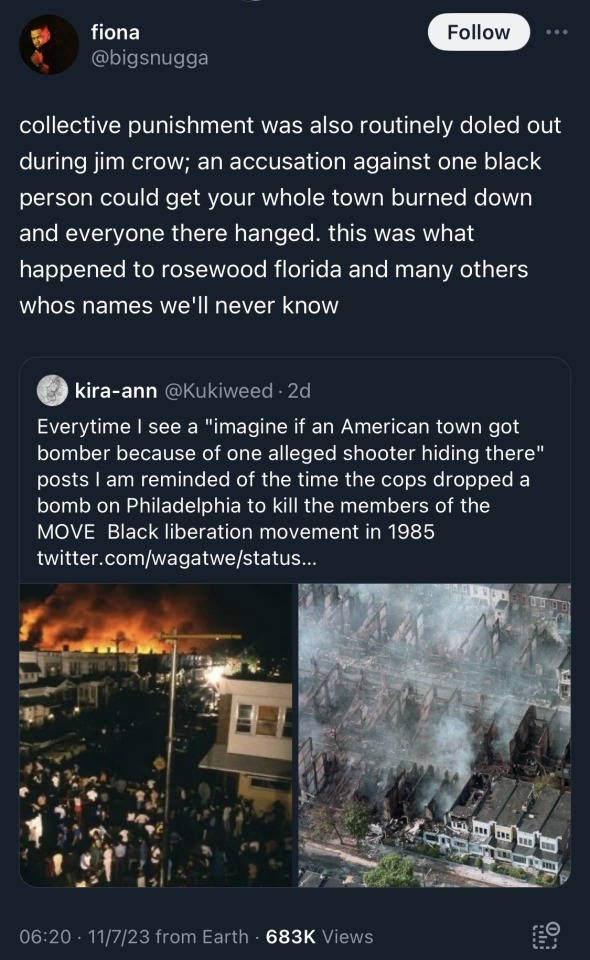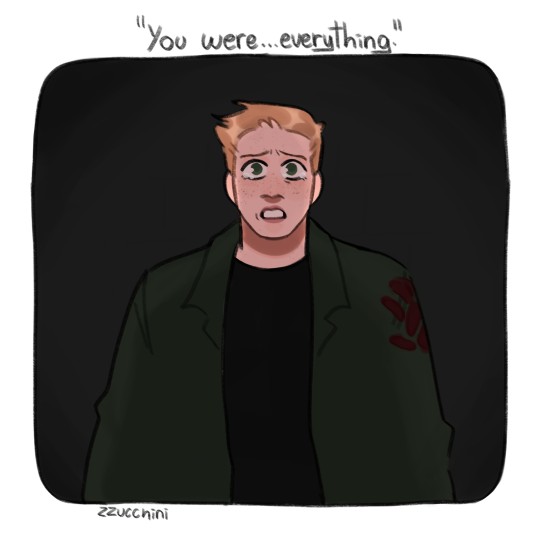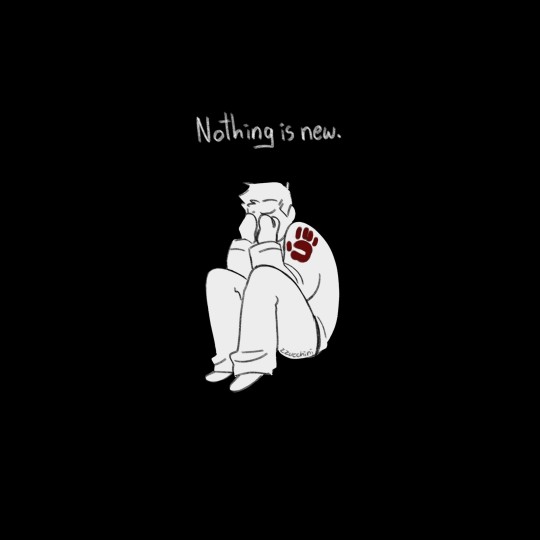Text
teaching yourself how to deal with mildly annoying inconveniences is imo an essential part of treating the disabled people around you with compassion and no i'm not kidding
47K notes
·
View notes
Text

"Lessons Learned" - A personal painting I have been waiting excitedly to share for a year now 🐻✨ this was my last truly inspired to work on/complex artwork before burnout truly set in. My lovely patrons gifted me the time to make this back in Jan '23, just sharing publicly now.
845 notes
·
View notes
Text
it really is insane how waking up early will grant you access to some of the most beautiful sights and sensations in the world that will make you want to live forever, but only if you overcome the gauntlet of a thousand razors that is getting out of bed early. truly one of life's little saw traps.
112K notes
·
View notes
Text
Tosh and Ianto in ‘Greeks Bearing Gifts’
Tosh ripping off the pendant after hearing Ianto’s thoughts is so cleverly done. She just sees how hard he’s trying to project that he’s alright when he’s absolutely not and actually succeeds in that, just for her to enter his mind and render his efforts null. I think she finally feels ashamed because the thoughts of others were not unexepcted to her and thus she didn’t feel like she was violating their privacy. But Ianto’s inner and outer personas are so different that she finally starts to understands her wrongdoing



224 notes
·
View notes
Text
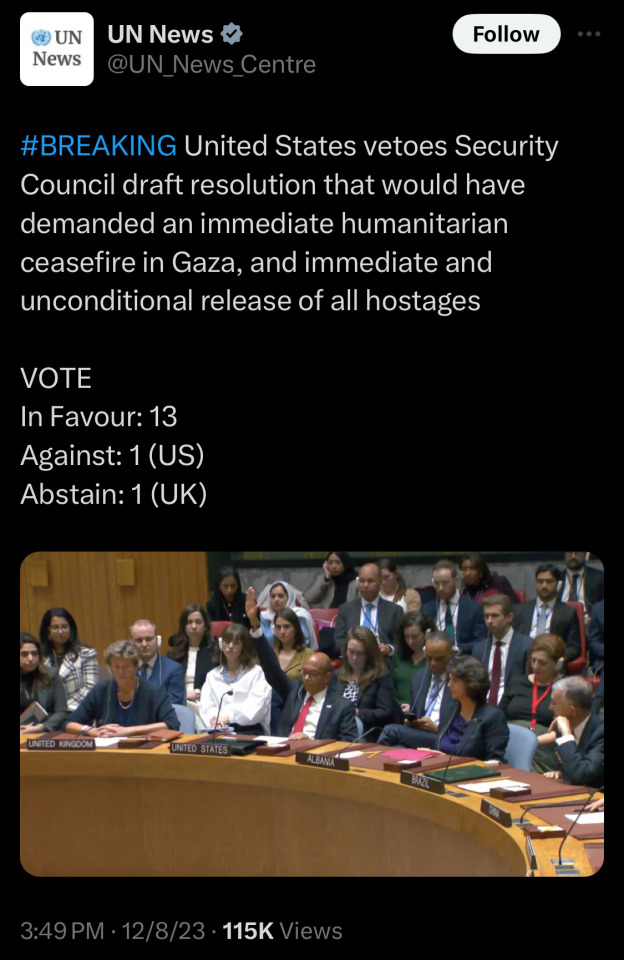

US lone dissenter in all of these UN votes is obvious and unsurprising but also still so fucking wild… literally the only purpose of the UN at this point is to demonstrate how wildly extreme the US is in its thirst for war, standing completely and utterly alone against the entire rest of the planet. this crumbling husk of empire needs to fucking fall
14K notes
·
View notes
Text
“It definitely broke our spirits,” said Brittany Harris, 17, a junior and the co-president of the club, when she heard that the board didn’t want to accept the grant that students had worked on for weeks.
LGBTQ teens won a grant for their school. Adults sent the money back.
19K notes
·
View notes
Text
i really hate the revisionist holocaust history that is dominant in america and i really recommend ken burns documentary the u.s. and the holocaust. a lot of people know about hitler taking inspiration from the us but not the true degree of apathy and antisemitism from the american public, and us political and financial entanglement with the nazis. also, the holocaust and especially its jewish victims were not publicly discussed until years after the war and holocaust survivors in displaced persons camps across europe were kept in horrible conditions by their american “liberators.” the way that american history is constructed to explain its role in ww2 and reasons for supporting israel is false
ill just add this quote from the guardian review
“There are fascinating details about the complicity of most Hollywood studios, for whom Germany was a big market. About 80 million Americans went to the movies once a week in the 30s, but when they were there they would hear nothing against the Nazis. In 1938, a poll asked Americans if they felt Jews were to blame, partly or entirely, for what was happening to them in Germany. Two-thirds of respondents said they were.”
5K notes
·
View notes
Text
[“People are attracted to the concept of a Nordic-style law that criminalises only the sex buyer, and not the prostitute – but any campaign or policy that aims to reduce business for sex workers will force them to absorb the deficit, whether in their wallets or in their working conditions. As a sex worker in the Industrial Workers of the World observes,
I find that how easy, safe, and enjoyable I can make my work is directly related to whether I can survive on what I’m currently making … I might be safer if I refused any clients who make their disrespect for me clear immediately, but I know exactly where I can afford to set the bar on what I need to tolerate. If I haven’t been paid in weeks, I need to accept clients who sound more dangerous than I’d usually be willing to risk.
When sex workers speak to this, we are often seemingly misheard as defending some kind of ‘right’ for men to pay for sex. In fact, as Wages For Housework articulated in the 1970s, naming something as work is a crucial first step in refusing to do it – on your own terms. Marxist-feminist theorist Silvia Federici wrote in 1975 that ‘to demand wages for housework does not mean to say that if we are paid we will continue to do it. It means precisely the opposite. To say that we want money for housework is the first step towards refusing to do it, because the demand for a wage makes our work visible, which is the most indispensable condition to begin to struggle against it.’ Naming work as work has been a key feminist strategy beyond Wages For Housework. From sociologist Arlie Hochschild’s term ‘emotional labour’, to journalist Susan Maushart’s term ‘wife-work’, to Sophie Lewis’s theorising around surrogacy and ‘gestational labour’, naming otherwise invisible or ‘natural’ structures of gendered labour is central to beginning to think about how, collectively, to resist or reorder such work.
Just because a job is bad does not mean it’s not a ‘real job’. When sex workers assert that sex work is work, we are saying that we need rights. We are not saying that work is good or fun, or even harmless, nor that it has fundamental value. Likewise, situating what we do within a workers’ rights framework does not constitute an unconditional endorsement of work itself. It is not an endorsement of capitalism or of a bigger, more profitable sex industry. ‘People think the point of our organisation is [to] expand prostitution in Bolivia’, says ONAEM activist Yuly Perez. ‘In fact, we want the opposite. Our ideal world is one free of the economic desperation that forces women into this business.’
It is not the task of sex workers to apologise for what prostitution is. Sex workers should not have to defend the sex industry to argue that we deserve the ability to earn a living without punishment. People should not have to demonstrate that their work has intrinsic value to society to deserve safety at work. Moving towards a better society – one in which more people’s work does have wider value, one in which resources are shared on the basis of need – cannot come about through criminalisation. Nor can it come about through treating marginalised people’s material needs and survival strategies as trivial. Sex workers ask to be credited with the capacity to struggle with work – even to hate it – and still be considered workers. You don’t have to like your job to want to keep it.”]
molly smith, juno mac, from revolting prostitutes: the fight for sex workers’ rights, 2018
924 notes
·
View notes
Text
a highly valuable skill to develop in adulthood is the ability to recognize when a person is so terrified of the vulnerability of participation that they cast themselves as a judge and arbiter instead. the person who stands outside the proceedings they don’t have the marrow to enter who tells you all how badly you’re doing.
395 notes
·
View notes
Text
[“Poverty is embarrassing, shame inducing. Misery (misère), the French sociologist Eugène Buret once remarked, “is poverty felt morally.”
You feel it in the degradation rituals of the welfare office, where you are made to wait half a day for a ten-minute appointment with a caseworker who seems annoyed you showed up. You feel it when you go home to an apartment with cracked windows and cupboards full of cockroaches, an infestation the landlord blames on you. You feel it in how effortlessly poor people are omitted from movies and television shows and popular music and children’s books, erasures reminding you of your own irrelevance to wider society. You may begin to believe, in the quieter moments, the lies told about you. You avoid public places—parks, beaches, shopping districts, sporting arenas—knowing they weren’t built for you.
Poverty might consume your life, but it’s rarely embraced as an identity. It’s more socially acceptable today to disclose a mental illness than to tell someone you’re broke. When politicians propose antipoverty legislation, they say it will help “the middle class.” When social movement organizers mobilize for higher wages or housing justice, they announce that they are fighting on behalf of “working people” or “families” or “tenants” or “the many.” When the poor take to the streets, it’s usually not under the banner of poverty. There is no flag for poor rights, after all.
Poverty is diminished life and personhood. It changes how you think and prevents you from realizing your full potential. It shrinks the mental energy you can dedicate to decisions, forcing you to focus on the latest stressor—an overdue gas bill, a lost job—at the expense of everything else. When someone is shot dead, the children who live on that block perform much worse on cognitive tests in the days following the murder. The violence captures their minds. Time passes, and the effect fades until someone else is dropped.
Poverty can cause anyone to make decisions that look ill-advised and even downright stupid to those of us unbothered by scarcity. Have you ever sat in a hospital waiting room, watching the clock and praying for good news? You are there, locked on the present emergency, next to which all other concerns and responsibilities feel (and are) trivial. That experience is something like living in poverty. Behavioral scientists Sendhil Mullainathan and Eldar Shafir call this “the bandwidth tax.” “Being poor,” they write, “reduces a person’s cognitive capacity more than going a full night without sleep.” When we are preoccupied by poverty, “we have less mind to give to the rest of life.” Poverty does not just deprive people of security and comfort; it siphons off their brainpower, too.”]
matthew desmond, from poverty: by america, 2023
2K notes
·
View notes
Text
I could write 20 pages against exclusionist arguments but nothing I could say would be as efficient as this
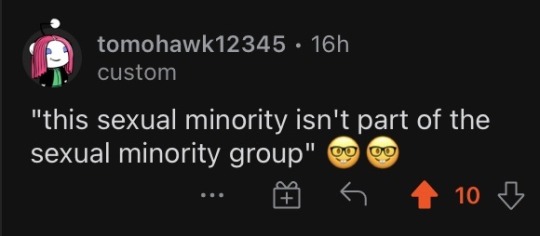
70K notes
·
View notes
Video
155K notes
·
View notes
